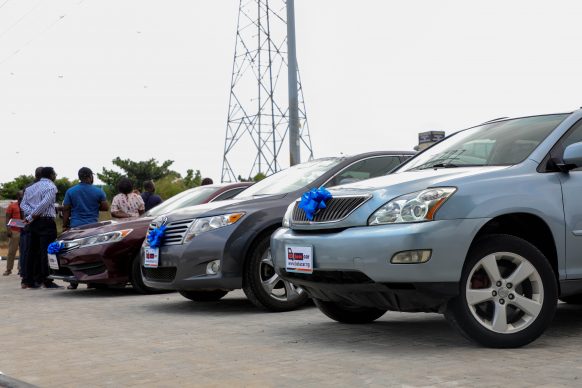The Nigerian automotive industry is facing a severe crisis, characterized by a dramatic market contraction driven by a staggering 126% increase in vehicle prices over the past eight years. The average price of a mid-size SUV, for example, has soared from N18 million to N80 million, effectively pricing out middle-income earners and significantly reducing the customer base. This price surge has crippled sales for dealerships, with monthly sales plummeting from 120-150 units to a fraction of that figure, leaving the government as the primary buyer of new vehicles. The lack of accessible consumer financing options further exacerbates the problem, leaving potential buyers unable to afford the inflated prices. This dire situation has forced many dealerships to scale down operations, threatening the viability of the entire sector.
The much-touted National Automotive Industry Development Plan (NAIDP), introduced over a decade ago, has failed to deliver on its promises of supporting both investors and consumers. The policy aimed to stimulate local vehicle assembly and component manufacturing, but Nigeria lags behind regional peers like Ghana, which now boasts seven manufacturers and 15 vehicle brands. The Nigerian government has been criticized for its lack of engagement with stakeholders, including original equipment manufacturers (OEMs) and local industry representatives. The absence of key government officials at crucial industry events, such as the recent West Africa Automotive Show 2025, sends a discouraging signal to potential investors and undermines efforts to attract foreign investment in local assembly and component production.
Furthermore, the government’s approach to international collaborations has drawn criticism. Bypassing local partners and engaging directly with international automakers like Toyota in Japan sends the wrong message and undermines the growth potential of the local industry. This practice weakens the position of local representatives and potentially bypasses valuable local expertise and market insights. It also creates an environment of distrust and discourages collaboration between international players and local businesses, hindering the development of a robust and sustainable automotive ecosystem.
A key factor contributing to the industry’s woes is the lack of accessible consumer financing. A proposed 35% levy on imported fully built vehicles, intended to generate funds for a consumer credit scheme, has not been implemented. This levy, projected to have accumulated over N200 billion since 2014, was designed to enable Nigerians to access affordable car loans with single-digit interest rates. While the recently announced N20 billion vehicle credit scheme by the Tinubu administration is a step in the right direction, it remains insufficient to address the massive financing gap that currently exists.
The transition to gas-powered vehicles also presents significant challenges, particularly regarding the accessibility and affordability of spare parts. While the government promotes the conversion from petrol to gas, ensuring a reliable supply of gas remains a major concern. Without readily available and affordable gas, the transition will likely falter, leaving consumers stranded and further hindering the automotive sector’s recovery. The National Automotive Design and Development Council’s (NADDC) local content policy, which aims to increase the use of locally produced components, will only be effective if Nigeria can attract more manufacturing firms. In the past, a significant portion of vehicle parts were produced locally, but currently, almost everything is imported. Reviving this local production capacity requires a combination of improved economic conditions and targeted government support.
Key industry stakeholders, including automobile dealers and spare parts dealers, are urgently calling on the Federal Government to take decisive action. They advocate for the expansion of consumer credit schemes to make vehicles more affordable for the average Nigerian. Strengthening auto policies, particularly the NAIDP, is crucial to attract investment and stimulate local production. Equally important is the need for the government to prioritize engagement with local stakeholders in all international investment discussions. These measures are essential to revitalize the Nigerian automotive sector, create jobs, and contribute to the overall economic growth of the country. Without a concerted effort to address these pressing issues, the industry risks further decline, with potentially devastating consequences for the Nigerian economy.














